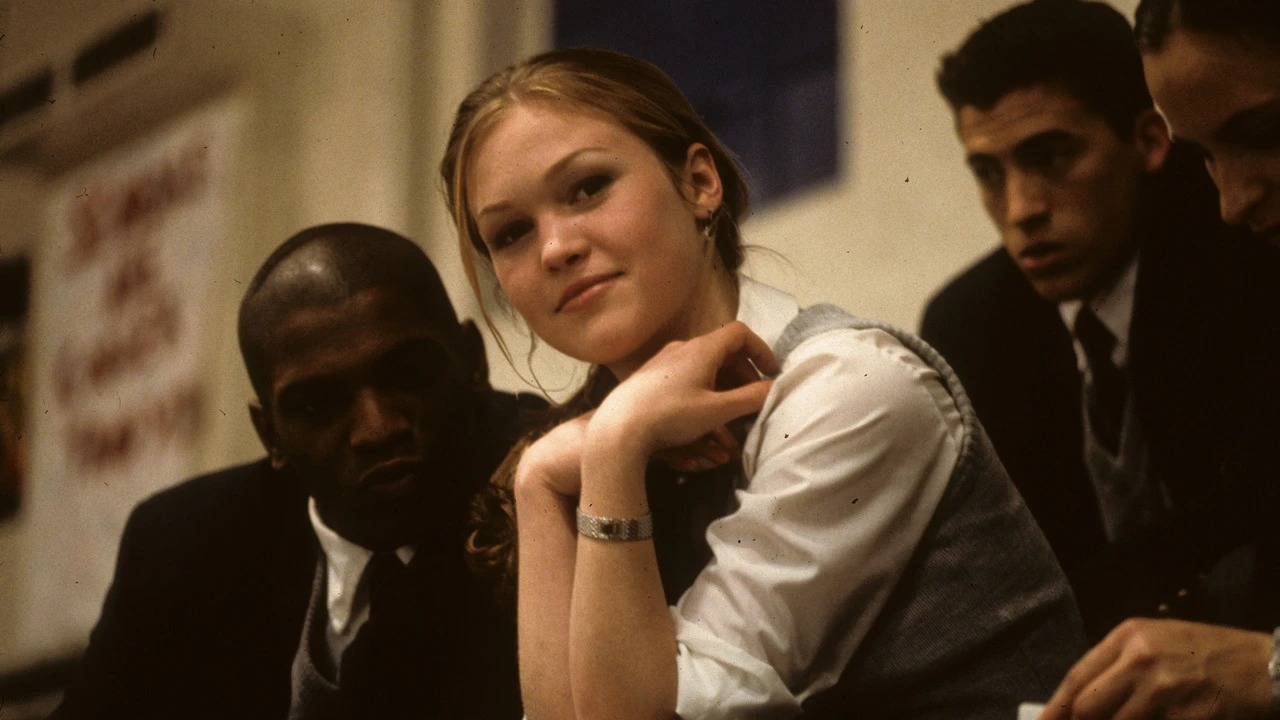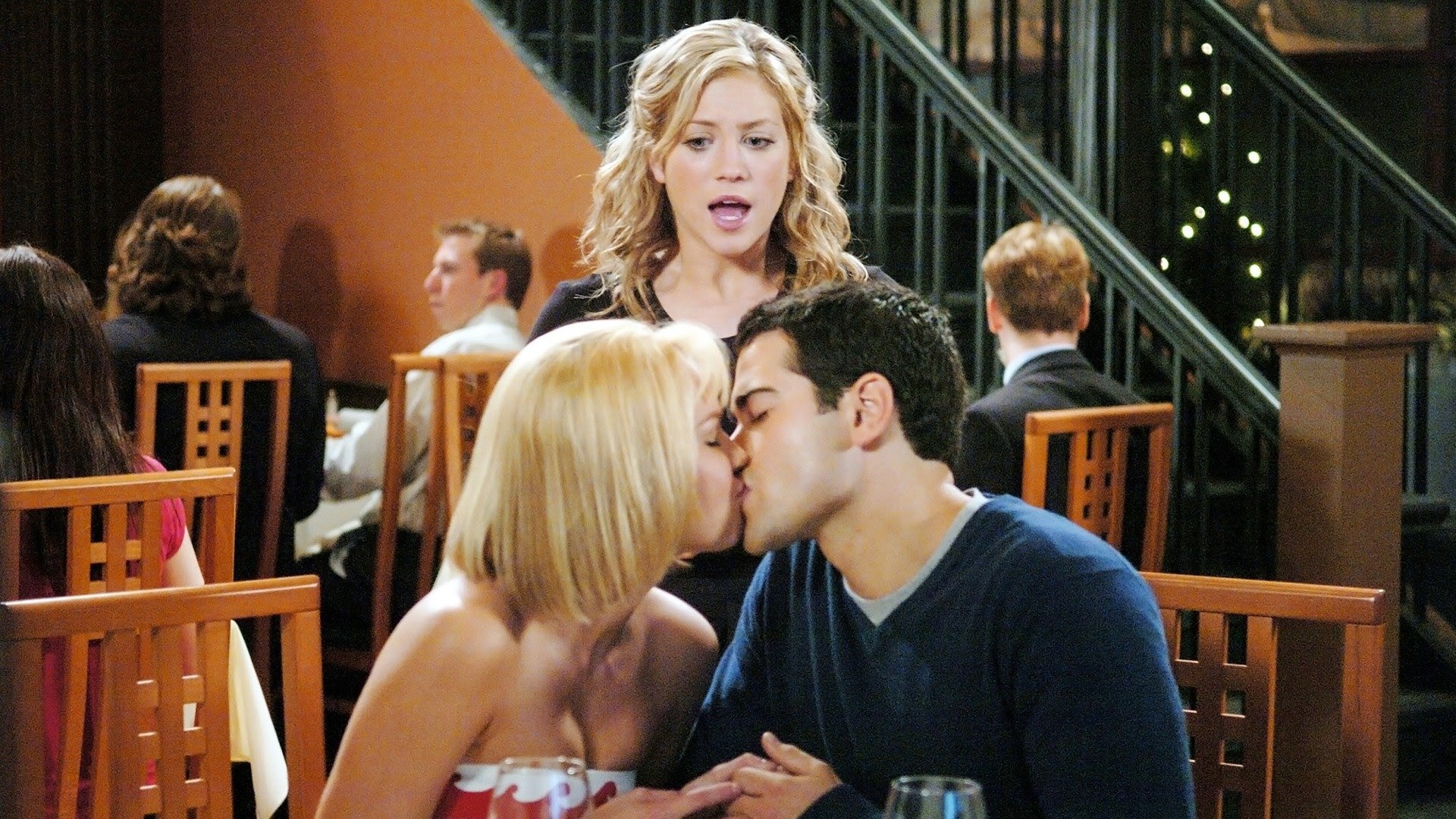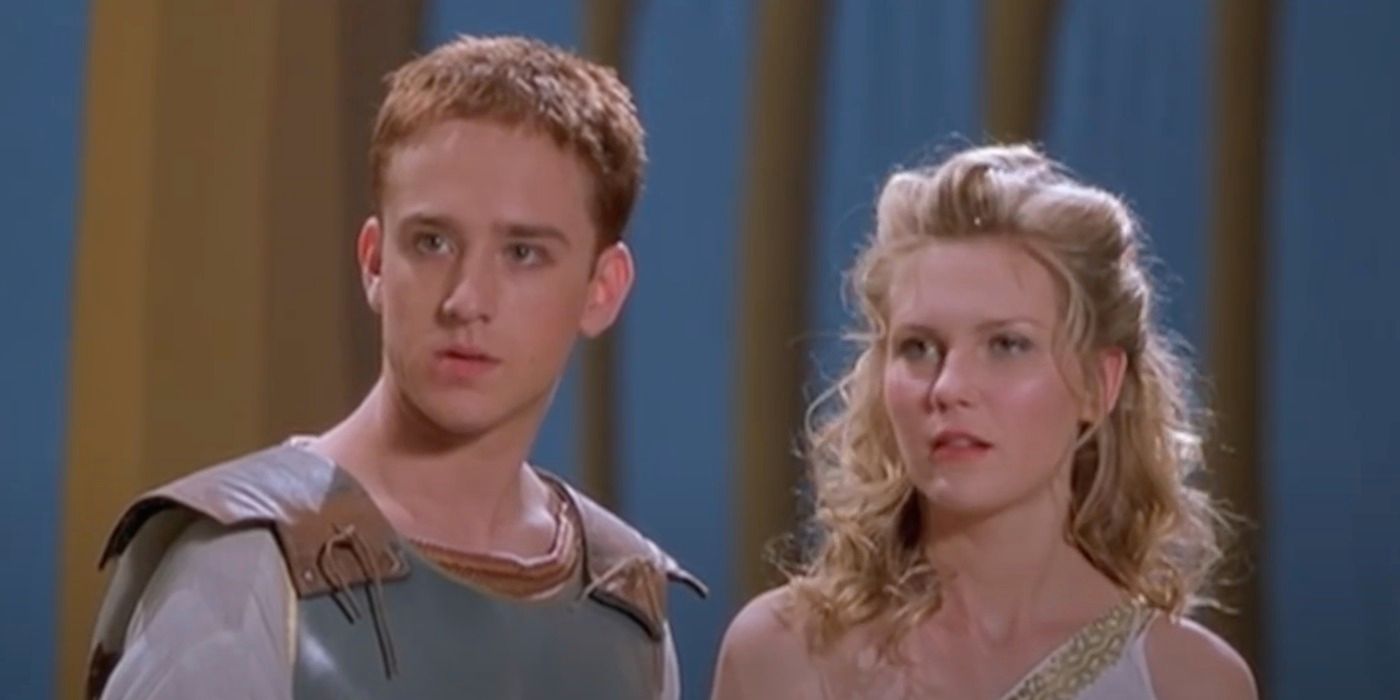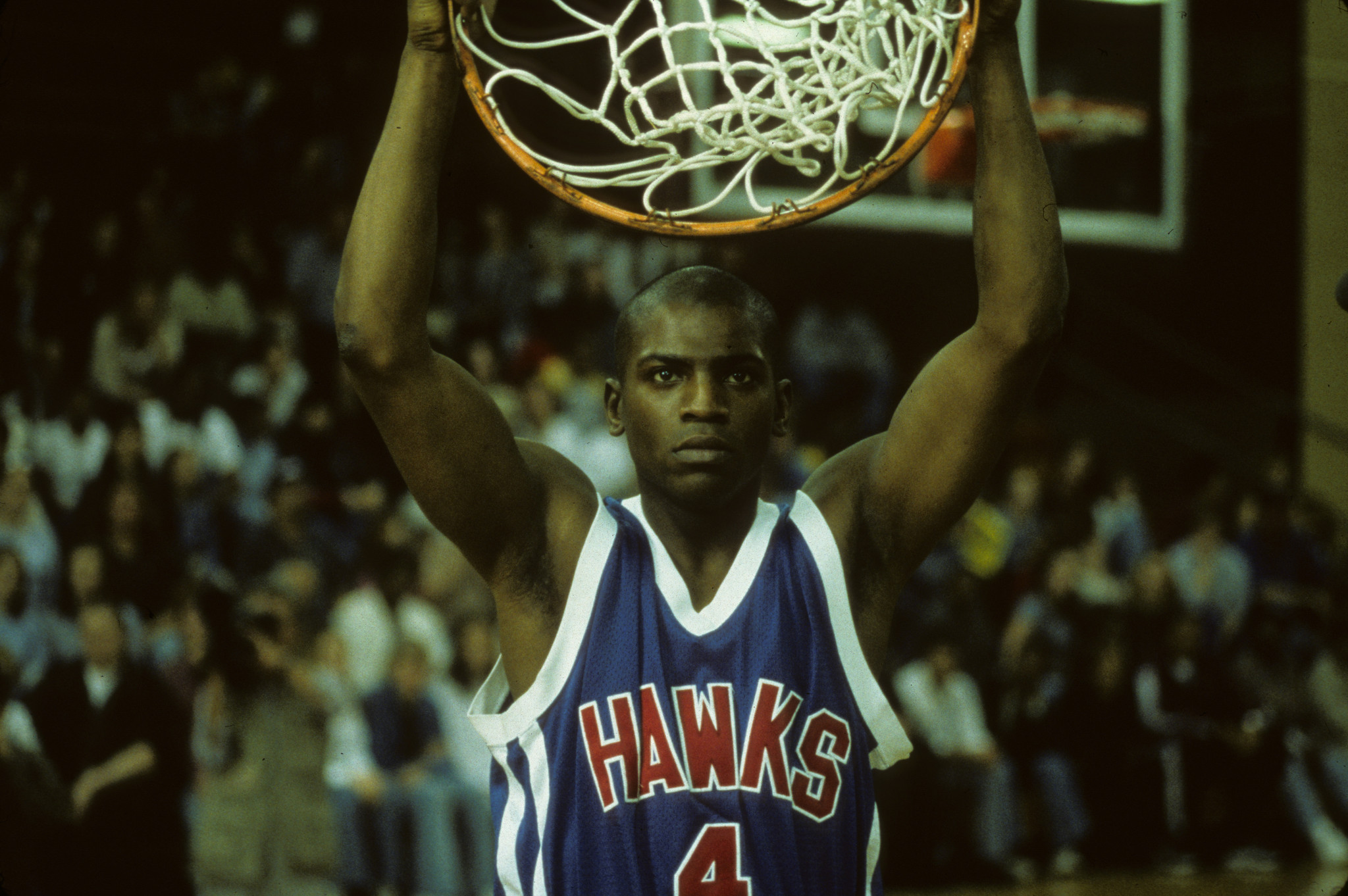My Problematic Fave: A juicy question with many answers: Catherine Breillat. Dollarama. Nina Simone's version of "I Loves You, Porgy" (it's not on Simone, she saves it from Gershwin, it's just the one I love). I would say Woody Allen's Husbands and Wives or Deconstructing Harry, but I think it's okay to enjoy those (so bleak and revealing, they are basically a confession), it's more problematic that I love Manhattan.
First Movie I went on a Date for: Sweet Home Alabama, a double date with my neighbourhood friend and two guys from another school we met hanging out (as teens do) after school hours at the playground. He thought I was crying during an emotional scene where Reese Witherspoon visits a grave in her hometown (A grandparent? Childhood dog?), but I was a cynical 14-year-old, and not then or now a Rom Com girl, and was trying to muffle my laughter.
My Movie/TV Character Style Icon: Julia Stiles in Hamlet, Kiera Knightley in Love, Actually, Satine in Moulin Rouge, Maggie Cheung and Nathalie Richard in Irma Vep.
The First Sex Scene I Ever Saw: I can't remember for sure, but probably Titanic.
… and it made me feel: Confused: it gave me absolutely no information on what sex actually is, only that there were certain signals I would one day understand (like the men who laugh knowingly when they see the fogged up windows). Also afraid: it seemed sex would always leave some trace, and you could not hide it from anyone. Also romantic: sex was fun and actually fine, no one was hurt by it or punished for it (although it did happen right before they hit the iceberg, but this was not a coincidence that my young mind internalized.)
Best Needle Drop: Most of the songs in Rushmore (but maybe "Oo La La" by The Faces the most). I didn't even know what those songs were when I watched it at 15, but I knew that they were perfect.
I Wish this Fictional Meal Existed IRL: This meal does exist, but I have never seen the timpano from Big Night out in the wild, and although it seems like something that is better in theory than in execution, I'm not sure I'll feel fully satisfied if I never try one.
Untouchable Classic that I hate: How do I even pick! Citizen Kane does very little for me (except Welles, who I find quite hot), 2001: A Space Odyssey is glacial and so British (I do think the scene approaching the monolith on the moon is fab), Bresson leaves me dry (a symptom, perhaps, of him casting actors because they're hot), I find Parasite shallow, I only like the scenes in Stalker before and after they go to the Zone, and I can't get past Jeanne Dielman's melodramatic ending (which became an irritating staple of art house film).
Celebrity I had on my wall as a teen
Frank Black Francis and Karen O.
My film/TV OTP is: I can't think of a time when I felt the ending of a film or show should have been different, I like when characters come together, I like when they fall apart.
The Reality TV Show I Would Win: I think it's obvious that my true place is not as a competitor, but as a judge.

Lechery, by this hand! (High Flying Birds)
Slated for release in 1999 but held during post-production in the wake of the Columbine shooting, O (2001) transposes the story of Othello into the ranks of a high school basketball team. That’s an insane sentence, and Tim Blake Nelson’s tortured, strikingly ostentatious melodrama certainly lives up to it. O is imbued with a (frequently literal) operatic grandeur and a brooding style pitched in the same ruthlessly calculating register as the play’s contemptuous protagonist Iago, embodied here as Hugo Goulding (Josh Hartnett, in top form).
Like Othello, the story plays out from the perspective of the schemer, with Hugo expressing his festering jealousy for friend-cum-rival Odin James (Mekhi Phifer) in voiceover. Odin, nicknamed “O,” is the star player on their team, and he’s crowned MVP by Hugo’s father, Coach Duke (Martin Sheen), in an early scene. O––a recovered addict with a short fuse and a God-given talent––was recruited personally by Duke, who runs the team like a platoon. O attends the South Carolina prep school on a scholarship; Hugo attends because his father works there. O is secretly dating the dean’s daughter, Desi (Julia Stiles), and Hugo’s first order of business is convincing the man that O assaulted her. Then he sets about convincing O that Desi is cheating on him with their friend Mike, a doofus (standing in for Cassio) who cluelessly plays into Hugo’s malevolent designs.
From the outset, it’s apparent that O will hew close to the plot of its tragic source material. In the second half, O’s jealousy is stoked brilliantly by Hugo but, like the play, it hinges on a fundamental mistrust of Desi, a wellspring of deep-seated misogyny that compels O toward violent behaviours, which square poorly with what we know about the character and the couple. Their romance is written with a winning mixture of naivety and sincerity––and buoyed by a levity that shows a deeper understanding of adolescent feeling––but the film’s attempts to convincingly rip this apart are less successful.
A murky quasi-rape scene finds us at a point of no return only 40 minutes in, and a subsequent exchange between Desi and her roommate Emily (the film’s Emilia), distills many of O’s ambitions and contradictions: “Desi, you said ‘stop’.” “Would you be so concerned if he was white?” “That is so easy.” The film is admirably drawn toward grey areas, but less admirably prone to fabricating them––though there are speculations on “Othello” that read an exchange in Act 4 as the “soundtrack” to an assault, this particular ugly plot point is the screenplay’s own.
In the film’s final stretch, there’s a sick satisfaction in watching Hugo’s plans finally being foiled by the unpredictability of human nature, and that pleasure finds friction with the gnawing dread that underscores O’s descent into gun-wielding madness (hence the film’s postponement). The film climaxes with a sweeping montage and lofty metaphors likening the boys to doves and hawks, ending with the camera floating away from Hartnett staring out the back of a police car. O’s imagery is sensuous and alive, and it’s a compelling experiment in teen drama played morbidly straight, but the script’s gestures toward updating or interrogating its source material are surface-deep.

I do begin to perceive that I am made an ass (Score!)
Whether they’re lining the bleachers of a school gymnasium or recliners in a multiplex, Western audiences love to see a douchebag winning. The titular John Tucker who must die (played with cardboard charisma by Jesse Metcalfe, better known for a role on Desperate Housewives) is a blandly good-looking jock and an expert juggler of girls and basketballs alike: a true player, and a real douche. John Falstaff––a key figure from the Henriad plays reused by Shakespeare for the ribald comedy The Merry Wives of Windsor––is an aging, obese drunkard, whose sloth, cowardice, and utter lack of decorum are offset by an indomitable joie de vivre. Throughout each play featuring Falstaff, we are given plenty of valid reasons to hate the man, but he’s one of the most beloved characters in the Bard’s canon.
John Tucker is a far cry from John Falstaff (and Jesse Metcalfe an even farther one from Orson Welles), but against all odds, he’s strangely compelling as John Tucker Must Die’s gravitational centre. When his three girlfriends––cheerleader Heather (Ashanti), alt girl Beth (Sophia Bush), and aspiring filmmaker Carrie (Arielle Kebbel)––learn about each other by mistake, their initial brawl is broken up by the new girl in town, Kate (Brittany Snow). Used to living in the shadow of her MILFy single mom (and the string of Tucker-like bozos she’s dated throughout her daughter’s childhood), Kate is accustomed to being invisible. But John Tucker doesn’t just notice her, he doggedly pursues her, so naturally the girls decide to use Kate as bait in order to break the heart of the man who scorned them.
The main plot of Merry Wives is a touch simpler, with two married women (Mistresses Page and Ford) getting back at Falstaff for sending them identical letters of solicitation. John Tucker Must Die pays twisted homage to the women’s pranks when the girls cut his protein powder with estrogen, and later trick him into scaling a building wearing women’s lingerie, but John is utterly (and infectiously) unflappable, spinning his humiliations into trends and triumphs. The admirably mean spirited film’s feminist leanings are put on the back burner once his feelings for Kate are revealed to be genuine (though the Kate he knows is not), and John’s emotional vulnerability is prioritized instead.
When Kate comes clean to him (in front of a crowd, of course), all parties are forgiven, and John’s cruel manipulations are solved with more transparent polyamory. The script’s considerable efforts to endear us to John as just one of those guys go down easier than I’ve made it sound, but his guilt-free happy ending begs several questions about the affection we lavish upon men who may not deserve it. At the end of the day, though, this is fitting in the context of Shakespeare’s work, which, for better and for worse, made silk purses out of so many human embodiments of a sow’s ear.

Yield thy crazèd title to my certain right (On Loserdom)
My mother has been the director of education at the Shakespeare festival, Bard on the Beach, for more than twenty years. One of her many projects was the summer camp, Young Shakespeareans, which my sister and I (naturally) were enrolled in on numerous occasions. It gave tweens and teens an in-depth understanding of a given play and the opportunity to perform it on one of the festival’s massive outdoor stages. I was among several Romeos in Romeo and Juliet (much to my chagrin––I’d wanted Mercutio); I played Toby Belch in Twelfth Night, Claudius in Hamlet, Banquo in Macbeth. The experiences were exciting and enriching, but I more readily recall various impressions of petty dramas and embarrassments that occurred behind the scenes than I do the performances themselves.
***
In Get Over It (2001), the characters take part in their high school’s production of A Midsummer Night’s Dream. Prior to this pivotal point, Tommy O’Haver’s obnoxiously arch romcom bore little resemblance to Shakespeare’s text––its snide protagonist, Berke Landers (Ben Foster) spends most of the film humiliating himself in embittered efforts to win back his childhood sweetheart, Allison McAllister (Melissa Sagemiller), who dumps him in the opening sequence.
In A Midsummer Night’s Dream, a play within the play (ineptly telling an unrelated romantic tragedy from Greek mythology) is mounted by Peter Quince, who leads his oafish gaggle through rehearsals in the forest. In Get Over It, Peter Quince becomes Desmond Forrest Oates, a failed Broadway hopeful (played hysterically by a goateed Martin Short) who wants to reconfigure Shakespeare’s play as a kitschy teenybopper musical.
When Oates casts Allison as Hermia and Berke’s romantic rival Striker (Shane West) as Demetrius, Berke does everything he can to be in the production, though he can’t sing, dance, or act. Behind-the-scenes antics are intercut with stagey dream sequences, wherein Berke imagines himself as Lysander, the true object of Hermia’s forbidden affections, and Striker as the man whose pre-existing betrothal supposedly gives him the right to be with her. Later in the film, when Berke grows closer to the girl playing Helena, Kelly Woods (Kirsten Dunst)––who crushes on him even though he only has eyes for the girl that’s out of reach––it becomes clear that, in spite of his visions to the contrary, Berke is the film’s Demetrius. He’s hung up on the idea of a childhood connection ensuring a “love that lasts forever”, a “certain right” by any other name.
Through fortuitous hijinks, he’s eventually cast as Lysander in Oates’s flailing production, much to the harried director’s mounting chagrin. After realizing that Kelly is the girl of his dreams midway through the final performance, Berke improvises a new ending to the play in which Lysander confesses his love to Helena. Striker makes a fool of himself, the crowd eats up the unplanned spectacle, and Oates basks in the unexpected roar of applause.
The meat of the plot is far-flung from its ostensible source, but by placing the play at the center of the action, A Midsummer Night’s Dream becomes a reflective surface for Get Over It’s interlocking teen romances to react against. The film is clever and circuitous, bucking the expected frameworks of adaptation while also enacting them in a playful (if mocking) spirit. Though O’Haver’s sensibilities frequently play as smug and vainglorious, these qualities belie a deeper wisdom––an understanding that fiction, performance, and mimicry are often invaluable tools for learning more about ourselves.

Lechery, by this hand! (High Flying Birds)
Slated for release in 1999 but held during post-production in the wake of the Columbine shooting, O (2001) transposes the story of Othello into the ranks of a high school basketball team. That’s an insane sentence, and Tim Blake Nelson’s tortured, strikingly ostentatious melodrama certainly lives up to it. O is imbued with a (frequently literal) operatic grandeur and a brooding style pitched in the same ruthlessly calculating register as the play’s contemptuous protagonist Iago, embodied here as Hugo Goulding (Josh Hartnett, in top form).
Like Othello, the story plays out from the perspective of the schemer, with Hugo expressing his festering jealousy for friend-cum-rival Odin James (Mekhi Phifer) in voiceover. Odin, nicknamed “O,” is the star player on their team, and he’s crowned MVP by Hugo’s father, Coach Duke (Martin Sheen), in an early scene. O––a recovered addict with a short fuse and a God-given talent––was recruited personally by Duke, who runs the team like a platoon. O attends the South Carolina prep school on a scholarship; Hugo attends because his father works there. O is secretly dating the dean’s daughter, Desi (Julia Stiles), and Hugo’s first order of business is convincing the man that O assaulted her. Then he sets about convincing O that Desi is cheating on him with their friend Mike, a doofus (standing in for Cassio) who cluelessly plays into Hugo’s malevolent designs.
From the outset, it’s apparent that O will hew close to the plot of its tragic source material. In the second half, O’s jealousy is stoked brilliantly by Hugo but, like the play, it hinges on a fundamental mistrust of Desi, a wellspring of deep-seated misogyny that compels O toward violent behaviours, which square poorly with what we know about the character and the couple. Their romance is written with a winning mixture of naivety and sincerity––and buoyed by a levity that shows a deeper understanding of adolescent feeling––but the film’s attempts to convincingly rip this apart are less successful.
A murky quasi-rape scene finds us at a point of no return only 40 minutes in, and a subsequent exchange between Desi and her roommate Emily (the film’s Emilia), distills many of O’s ambitions and contradictions: “Desi, you said ‘stop’.” “Would you be so concerned if he was white?” “That is so easy.” The film is admirably drawn toward grey areas, but less admirably prone to fabricating them––though there are speculations on “Othello” that read an exchange in Act 4 as the “soundtrack” to an assault, this particular ugly plot point is the screenplay’s own.
In the film’s final stretch, there’s a sick satisfaction in watching Hugo’s plans finally being foiled by the unpredictability of human nature, and that pleasure finds friction with the gnawing dread that underscores O’s descent into gun-wielding madness (hence the film’s postponement). The film climaxes with a sweeping montage and lofty metaphors likening the boys to doves and hawks, ending with the camera floating away from Hartnett staring out the back of a police car. O’s imagery is sensuous and alive, and it’s a compelling experiment in teen drama played morbidly straight, but the script’s gestures toward updating or interrogating its source material are surface-deep.

I do begin to perceive that I am made an ass (Score!)
Whether they’re lining the bleachers of a school gymnasium or recliners in a multiplex, Western audiences love to see a douchebag winning. The titular John Tucker who must die (played with cardboard charisma by Jesse Metcalfe, better known for a role on Desperate Housewives) is a blandly good-looking jock and an expert juggler of girls and basketballs alike: a true player, and a real douche. John Falstaff––a key figure from the Henriad plays reused by Shakespeare for the ribald comedy The Merry Wives of Windsor––is an aging, obese drunkard, whose sloth, cowardice, and utter lack of decorum are offset by an indomitable joie de vivre. Throughout each play featuring Falstaff, we are given plenty of valid reasons to hate the man, but he’s one of the most beloved characters in the Bard’s canon.
John Tucker is a far cry from John Falstaff (and Jesse Metcalfe an even farther one from Orson Welles), but against all odds, he’s strangely compelling as John Tucker Must Die’s gravitational centre. When his three girlfriends––cheerleader Heather (Ashanti), alt girl Beth (Sophia Bush), and aspiring filmmaker Carrie (Arielle Kebbel)––learn about each other by mistake, their initial brawl is broken up by the new girl in town, Kate (Brittany Snow). Used to living in the shadow of her MILFy single mom (and the string of Tucker-like bozos she’s dated throughout her daughter’s childhood), Kate is accustomed to being invisible. But John Tucker doesn’t just notice her, he doggedly pursues her, so naturally the girls decide to use Kate as bait in order to break the heart of the man who scorned them.
The main plot of Merry Wives is a touch simpler, with two married women (Mistresses Page and Ford) getting back at Falstaff for sending them identical letters of solicitation. John Tucker Must Die pays twisted homage to the women’s pranks when the girls cut his protein powder with estrogen, and later trick him into scaling a building wearing women’s lingerie, but John is utterly (and infectiously) unflappable, spinning his humiliations into trends and triumphs. The admirably mean spirited film’s feminist leanings are put on the back burner once his feelings for Kate are revealed to be genuine (though the Kate he knows is not), and John’s emotional vulnerability is prioritized instead.
When Kate comes clean to him (in front of a crowd, of course), all parties are forgiven, and John’s cruel manipulations are solved with more transparent polyamory. The script’s considerable efforts to endear us to John as just one of those guys go down easier than I’ve made it sound, but his guilt-free happy ending begs several questions about the affection we lavish upon men who may not deserve it. At the end of the day, though, this is fitting in the context of Shakespeare’s work, which, for better and for worse, made silk purses out of so many human embodiments of a sow’s ear.

Yield thy crazèd title to my certain right (On Loserdom)
My mother has been the director of education at the Shakespeare festival, Bard on the Beach, for more than twenty years. One of her many projects was the summer camp, Young Shakespeareans, which my sister and I (naturally) were enrolled in on numerous occasions. It gave tweens and teens an in-depth understanding of a given play and the opportunity to perform it on one of the festival’s massive outdoor stages. I was among several Romeos in Romeo and Juliet (much to my chagrin––I’d wanted Mercutio); I played Toby Belch in Twelfth Night, Claudius in Hamlet, Banquo in Macbeth. The experiences were exciting and enriching, but I more readily recall various impressions of petty dramas and embarrassments that occurred behind the scenes than I do the performances themselves.
***
In Get Over It (2001), the characters take part in their high school’s production of A Midsummer Night’s Dream. Prior to this pivotal point, Tommy O’Haver’s obnoxiously arch romcom bore little resemblance to Shakespeare’s text––its snide protagonist, Berke Landers (Ben Foster) spends most of the film humiliating himself in embittered efforts to win back his childhood sweetheart, Allison McAllister (Melissa Sagemiller), who dumps him in the opening sequence.
In A Midsummer Night’s Dream, a play within the play (ineptly telling an unrelated romantic tragedy from Greek mythology) is mounted by Peter Quince, who leads his oafish gaggle through rehearsals in the forest. In Get Over It, Peter Quince becomes Desmond Forrest Oates, a failed Broadway hopeful (played hysterically by a goateed Martin Short) who wants to reconfigure Shakespeare’s play as a kitschy teenybopper musical.
When Oates casts Allison as Hermia and Berke’s romantic rival Striker (Shane West) as Demetrius, Berke does everything he can to be in the production, though he can’t sing, dance, or act. Behind-the-scenes antics are intercut with stagey dream sequences, wherein Berke imagines himself as Lysander, the true object of Hermia’s forbidden affections, and Striker as the man whose pre-existing betrothal supposedly gives him the right to be with her. Later in the film, when Berke grows closer to the girl playing Helena, Kelly Woods (Kirsten Dunst)––who crushes on him even though he only has eyes for the girl that’s out of reach––it becomes clear that, in spite of his visions to the contrary, Berke is the film’s Demetrius. He’s hung up on the idea of a childhood connection ensuring a “love that lasts forever”, a “certain right” by any other name.
Through fortuitous hijinks, he’s eventually cast as Lysander in Oates’s flailing production, much to the harried director’s mounting chagrin. After realizing that Kelly is the girl of his dreams midway through the final performance, Berke improvises a new ending to the play in which Lysander confesses his love to Helena. Striker makes a fool of himself, the crowd eats up the unplanned spectacle, and Oates basks in the unexpected roar of applause.
The meat of the plot is far-flung from its ostensible source, but by placing the play at the center of the action, A Midsummer Night’s Dream becomes a reflective surface for Get Over It’s interlocking teen romances to react against. The film is clever and circuitous, bucking the expected frameworks of adaptation while also enacting them in a playful (if mocking) spirit. Though O’Haver’s sensibilities frequently play as smug and vainglorious, these qualities belie a deeper wisdom––an understanding that fiction, performance, and mimicry are often invaluable tools for learning more about ourselves.



